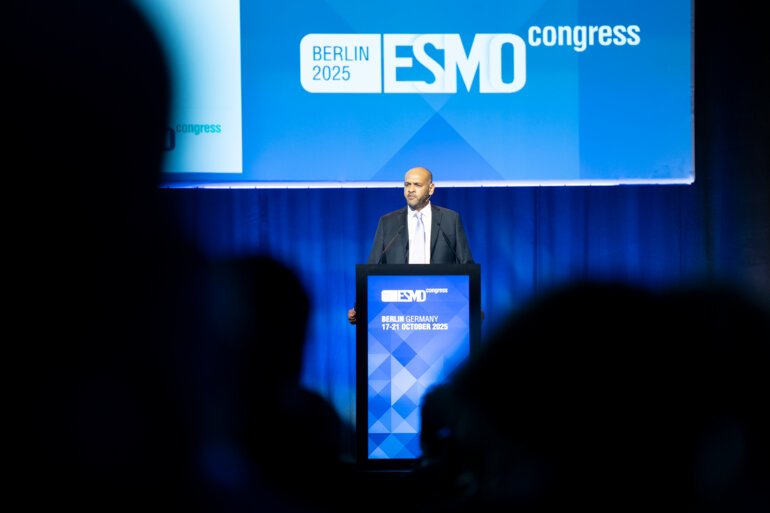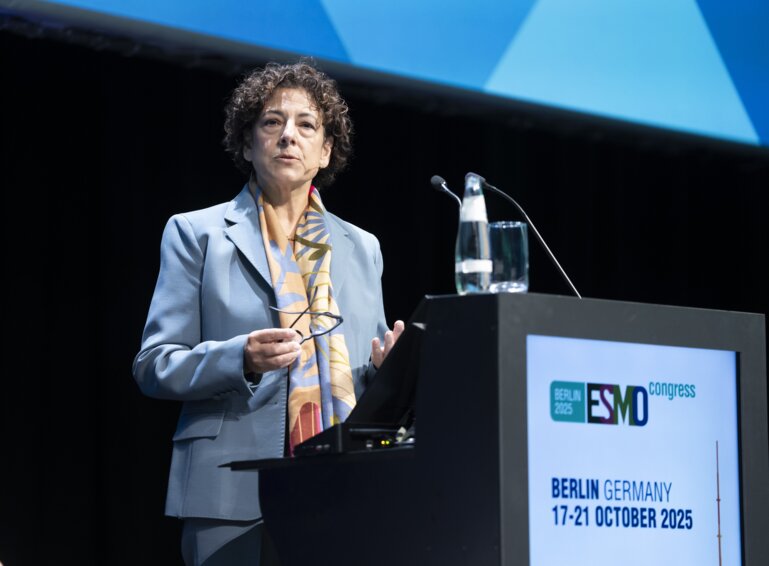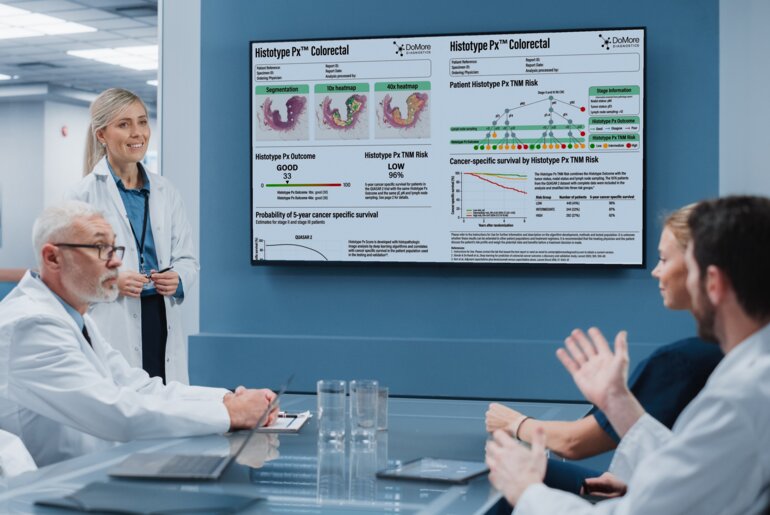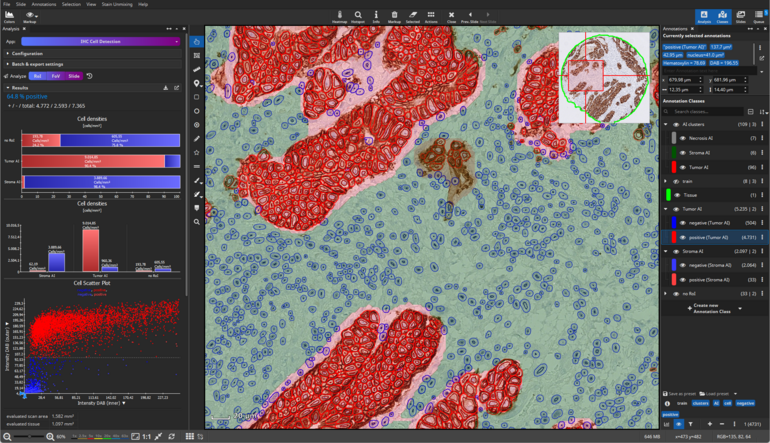
Trastuzumab deruxtecan is moving to the curative setting in early HER2-positive breast cancer
Positive findings from the DESTINY-Breast05 and DESTINY-Breast11 trials suggest that a paradigm change in the treatment of high-risk patients may be imminent

Is thymic health a novel tumour-agnostic biomarker?
Study findings reveal that good thymic health, based on an AI-derived algorithm, is associated with improved survival after immunotherapy in different tumour types

Extensive-stage small-cell lung cancer: new approaches on the horizon?
Tarlatamab as first-line therapy and ceralasertib plus durvalumab as maintenance therapy have demonstrated potential efficacy and manageable tolerability

Local consolidative therapy combined with osimertinib improves progression-free survival in metastatic EGFR-mutant NSCLC
Results from the NorthStar trial highlight the potential for integrating local therapy with targeted agents to extend disease control in this setting

Mixed outcomes with novel targeted therapies for HER2-positive upper GI cancers
While a HER2-targeted bispecific antibody showed extended survival in pre-treated gastric cancers, TKI–immunotherapy combinations failed to confer a survival benefit

Long-term phase III data reinforce the benefits of CDK4/6 inhibitors in early breast cancer
Follow-up data at 7 and 5 years from monarchE and NATALEE provide reassurance of the sustained benefits of adjuvant CDK4/6 inhibitors in improving survival and reducing relapse

Optimising cancer care for individual patients is key to improving outcomes for all
An ESMO roadmap addresses how the new challenges in oncology can be transformed into opportunities for the benefits of oncology professionals and patients with cancer

Personalising cancer treatment with AI and digital pathology
Leveraging artificial intelligence and digital pathology, oncology is entering a transformative stage where advanced image analysis and AI-driven biomarkers enable personalised cancer treatment decisions.

Status and trends in digital pathology
Pathology is going digital. More than 50 AIs cleared for diagnostic use are now available. This article summarises the status quo and gives an outlook of upcoming emerging technologies.

Study presents an AI-guided approach to target cancer antigens
The innovative approach was successfully tested on NY-ESO-1 and promises to bypass some current challenges in the identification of T cell receptors for therapeutic use
